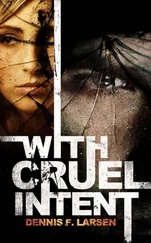And so she started sleeping with (it must be said, a somewhat surprised) Houston. True to his southern roots, Houston was polite and oddly balletic in bed, but altogether prosaic. When he came, he sounded like a seagull. It was just what she was looking for. She fought off all uncertainties with the banality of their lovemaking.
Then, in May, the shootings at Kent State popped the balloon of tension that had been steadily inflating that entire spring. Students all across the country recoiled at pictures of bodies lying facedown on the pavement like lonely, discarded mannequins. These pictures were pictures of them: they could’ve been lying on that pavement, with young runaways wailing above them at the bewildered National Guardsmen: What have you done? What have you done? What have you done?
At Syracuse, the academic pursuit seemed wholly worthless in the face of such mortality, and so the remainder of that semester withered and died with barely a whimper. Exams were optional; students, unsure of what still lassoed them to campus, clustered around boys with guitars on the quad who tried to mimic Dylan’s whining pontifications. As she hurried past these sing-alongs en route to the Carnegie Library, Charlene silently tsked their laziness, their disheveled, E-minor self-importance. Where was Homer when you needed him? Mēnis —rage so pure it could be felt only by the gods:
Rage — Goddess, sing the rage of Peleus’ son Achilles,
murderous, doomed, that cost the Achaeans countless losses,
hurling down to the House of Death so many sturdy souls.
These boys with guitars wouldn’t know real rage if it clobbered them on the head. They had no idea. Achilles, who became so intoxicated with mēnis after the Trojans murdered his lover, Patroclus, that he killed everyone in sight, and when their bodies choked the waters, he fought the river god, too. Achilles, who finally tracked down Hector, his lover’s murderer, and threw a spear straight through his neck, tying him to his chariot and dragging him around Troy for nine days until the mass of flesh became unrecognizable as anything human. That was dedication. Not these slow-jam-acoustic-hashish-hippie symposia. This was the curse of the voracious reader, she realized. Real life never quite measured up to the heightened and precise contours of her literary worlds. A real war was never as true as a fictive one.
One night, she was working late in the bowels of the library, reorganizing the card catalog — something she often did when she did not want to face the solitude of her insomnia. The campus was practically empty, so she was surprised when H. H. appeared in the doorway, his tie undone, his hair standing at attention. His car was not working, he said. Would she mind if he waited here with her?
She did not ask what he was waiting for. They spoke briefly of something potentially meaningful, about the viability of protest, about the inevitability of cultural evolution. A theorist was mentioned. There was a silence. She was aware of the space between them. And then he was coming toward her, and she could hear the card rustle in her hands and she could smell the drink on his breath and then he was upon her, with his mouth open and his tongue wandering in circles, and she was receiving this tongue, falling into him, hating him.
“Charlene,” he whispered. “I’ve wanted this for so long.”
He undid his corduroy trousers and placed his hand on the back of her head and pushed her down and she took him into her mouth.
• • •
IN THE END, she barely slipped out of Syracuse with a degree. Her version of the narrative blamed everything on that night, located his assailment as a kind of anti — deus ex machina, where the universe performed its ultimate act of subterfuge while she was busy trying to play by the rules. It was analyse réductrice, but it gave her an excuse to drop the tiller entirely.
She started to drink again, with an enthusiasm honed by a year and a half of sobriety. She bounced around several Jersey librarianships, but she had no appetite for the job anymore. The books mocked her. She now saw the arbitrariness of the Dewey system as an exercise in futility — clearly, it was impossible to classify anything of real consequence. Meanwhile, Louise and Bertrand, once so hopeful for their daughter’s turnaround, worried at her sharp descent.
One evening, she was locking up the Hilton Branch of the Maplewood Memorial Library when she decided to have a few drinks from the bottle of rum that she kept hidden in her bottom drawer. She called up a friend she had met at a disco club on the Bowery and invited him over to the library. They dropped four tabs of Popeye blotter paper and proceeded to spend the rest of the night pulling down books. It was the most fun she had had in years. Running up and down the aisles destroying the system, one volume at a time. The books fell with great drama, splaying open on the ground like slaughtered animals. Then they screwed in the children’s section with their socks on, and afterwards it seemed like a good idea to purge the library of its most unworthy members. A small offering to the pagan gods — her own private me¯nis session. The Wrath of Charlene. She started a small fire in a waste bin. She was high, but she knew exactly what she was doing. In went a shelf-ful of mystery novels. An instruction manual on computers. Norman Mailer’s An American Dream . The volume H from the Encyclopaedia Britannica.
“The books aren’t burning,” she said, staring at her smoldering creation. “They’re resisting!”
“You’re one wild chick,” her companion said to her. He was naked, save for his socks. He resembled a kind of prehistoric hunter.
The books might not have burned in quite the manner she had hoped, but they created plenty of smoke. The fire alarm was soon triggered, flushing them out into the night.
A lone dog walker found them struggling into their clothes on the lawn outside as a yellow alarm beacon beat open the darkness.
“What’s happening?” he asked, his terrier standing at attention. “Is there a fire?”
“Don’t worry sir,” said Charlene. “We are professionals.”
Three thousand volumes suffered irreparable smoke damage. Thanks largely to her mother’s behind-the-scenes negotiation, Town of Maplewood v. Charlene Volmer was settled out of court; Charlene was placed on probation and sentenced to fifty hours of community service. Needless to say, she was also fired. It was an ignominious end to her career as a librarian.
She fulfilled her obligation to the community at the Legion Hall in Elizabeth. On Veteran Career Finder Day, she sat beneath a sagging magenta banner that declared WELCOME BACK BOYS! blindly distributing self-help literature to the hollow-eyed men fresh from the bunkers of Vietnam. In a distinct violation of her probation terms, she was nursing her second flask of schnapps and Kool-Aid beneath the table.
When she looked up again, he was standing at the head of the line. He, back only two weeks from the war in Vietnam. He, standing with hands folded to keep down the shaking, which had started since his return, or at least this was when he had started noticing it. The day he had left, Staff Sergeant Emerson, never known for saying a nice thing about another human being in his life, had squeezed his shoulder and called him the best damn radio operator he had ever worked with.
“What kind of job are you looking for?” she asked, only half registering the darkened eyebrows and the sculpted Slavic rumba-dimple of his chin.
“Radio operations. Repair. This kind of thing,” he said. Something in his voice.
She looked through her books for the first time that day. “I’m not sure I have that in my pile right here.” A slight slur to her speech. Ready to hand him whatever was on top.
Читать дальше












